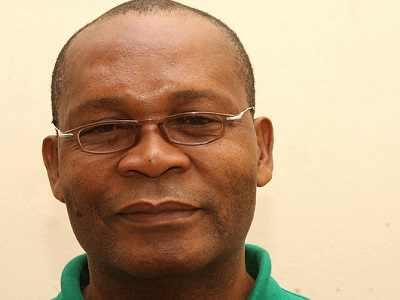This is contained in a statement signed by Dr Ejike Ndiulo, head of Corporate Communications, Air Peace, on Wednesday in Lagos.
According to Ndiulo, the decision is necessary because NiMet is the agency responsible for issuing CNH (Current Nowcast of Hazardous Weather) reports, critical for safe landings, especially during this season of heavy rainfall and thunderstorms.
He said without these reports from the control tower, flight safety could not be guaranteed.
“As a safety-first airline, we have chosen to act responsibly by suspending operations until NiMet resumes full service.
“We understand this may cause inconvenience, and we sincerely apologise. Passengers will be contacted with updates and options for rescheduling,” he said.
The staff of NiMET on Tuesday commenced an indefinite strike over the condition of service and other demands.
News
ICT Stakeholders Decry Attacks, Want ‘Special protection’

Stakeholders in the information and communications technologies (ICTs) sector have called for ‘special protection’ of its equipment and personnel in view of rising wave of wanton vandalism of infrastructure, arbitrary arrests, kidnapping and murder Nigeria CommunicationsWeek can now report.
This they said is necessary for Nigeria to continue to reap the benefits of the growth in the sector and avoid collapse of other sectors of the economy dependent on ICT.
Rising from one-day enlightenment forum on: “Critical ICT Infrastructure Protection Roundtable” organized by the Association of Licensed Telecommunications Operators of Nigeria (Alton) and Communications Week Media Limited, publishers of Nigeria CommunicationsWeek, the stakeholders noted with great concern the clear and present danger posed by attacks on networks.
Dr. Ernest Ndukwe, chairman of the event, stated that the law on protection of ICT facilities “must recognize all infrastructures as critical without re-segregation – either public or private sector equipment.” He emphasized that “public-private-partnership is needed in this regard.”
Ndukwe also former executive vice chairman/CEO, Nigeria Communications Commission (NCC) and chairman, Open Media Group, called for a robust policy framework to provide the necessary solutions required for such law to be fully implemented.
Gbenga Adebayo, chairman, Alton, expressed displeasure at the attacks on telecom equipment and warned of the dangers to the economy.
He said that ICT Network is a network that protects other network such as security, national health services, emergency services, banking among others, and therefore need to be protected.
To him, ICT infrastructure is like the body’s nervous system.
Isaac Idu, a lawyer and an assistant director of the Department of State Security (DSS), said there was already a ‘critical infrastructure bill’ at the national assembly which needs to be passed into law urgently.
Idu, who represented the Lagos state command director, noted that ICT operators have to push for the passage of the bill without necessarily advocating for a separate law which could take a much longer time.
He advised ICT companies to do due diligence on “security vulnerability assessment” of location before citing any telecom base station or other infrastructure.
According to him, security operatives rely on hi-tech communications equipment to gather intelligence, hence the need for a proper synergy between telcos and the state security service for effective intelligence for the protection of ICT infrastructure.
Nodding in agreement, Bankole Falade, regulatory affairs manager at MTN Nigeria said there are existing laws in the country that allows for telecom infrastructure protection.
For example, he noted that the civil defence act, police act and the pubic orders act could be leveraged upon to protect ICT infrastructure.
Isyaku Barau, a deputy commissioner of police (DCP), who represented the AIG in charge of Zone two, said ICT infrastructure vandalism is no different from other sectors like oil and gas and power cables.
He believes the solution lies with all stakeholders – operators, communities, consumers, and security agencies – “everybody should ensure that ICT infrastructure is necessary for their survival. If the telecommunications facility is down, it means the police cannot be effective because we need the telephone to gather information on activities of crime. Now the operators need to also look beyond community leadership and extend goodwill to other stakeholders in any given community; that way no one would feel left out or cheated.”
At the end of the day, participants recommended that the federal government should set up a task force to protect ICT infrastructure.
They also called for confidentiality agreement on communications data to ensure maximum protection.
The roundtable recommended that telecoms site should not be shut down without a court order for any reason because of its consequence on quality of service and insisted that the interest of consumers should be protected as it affects telecoms facilities.
Participants also called for community involvement in protecting telecoms infrastructure while urging the passage of Critical Infrastructure Bill.
News
Air Peace Suspends Flight Operations Nationwide

News
NITDA Fixes Date for Inaugural Meeting of the Startup Consultative Forum

The National Information Technology Development Agency (NITDA) is pleased to announce the inaugural meeting of the Startup Consultative Forum, scheduled for Monday April 28, 2025 This milestone event marks a significant step in deepening stakeholder engagement within Nigeria’s growing startup ecosystem.

The Forum will serve as an interactive platform for startup founders, innovators, ecosystem enablers, and intermediaries to actively shape national policies that foster growth, attract investment, and drive digital innovation.
Convened under the framework of the Nigeria Startup Act (NSA), this initiative reflects the government’s commitment to making startups not just stakeholders but key contributors in building an enabling environment for innovation.
The meeting will emphasize collaborative dialogue, with a primary focus on nominating and selecting representatives for the National Council for Digital Innovation and Entrepreneurship (Startup Council)—Nigeria’s highest advisory body for the startup ecosystem. Decisions from this Forum will lay the foundation for inclusive policy development, amplifying the voices of Nigeria’s tech and innovation community.
NITDA invites all Labelled Startups, Verified Entrepreneurial and Innovation Support Organisations, Angel Investors, Venture Capitalists, and other relevant stakeholders to join the Forum and actively participate in the nomination and voting process.
Join us in shaping the future of digital innovation in Nigeria. Together, we can build a thriving ecosystem that supports and celebrates the pioneering spirit of Nigerian startups.
News
IMF Downgrades Nigeria’s Economic Growth Forecast Amid Oil Price Decline

International Monetary Fund (IMF) has revised downward its economic growth forecast for Nigeria in 2025 to 3.0%, a 0.2 percentage point cut from its earlier projection of 3.2%.

The downgrade is attributed to a decline in global crude oil prices, which remain a significant driver of Nigeria’s economy.
The updated figures were published in the IMF’s April 2025 World Economic Outlook (WEO) report, released in Washington, DC, during the ongoing Spring Meetings of the IMF and the World Bank.
The report outlines global and regional economic trends, highlighting continued vulnerability among oil-dependent economies.
According to the IMF, growth across sub-Saharan Africa is also expected to experience a modest decline, with projections falling from 4.0% in 2024 to 3.8% in 2025. However, a slight recovery is anticipated in 2026, with growth forecasted at 4.2%.
Nigeria, Africa’s largest economy, was singled out in the report as among the major economies affected by falling oil prices. The IMF noted that the country’s 2026 growth forecast has also been revised downward by 0.3 percentage points.
The IMF further reported similar economic challenges in other African countries. In South Africa, growth projections were adjusted downward by 0.5 percentage point for 2025 and 0.3 percentage point for 2026.
These revisions reflect weakening economic momentum following a lacklustre 2024, growing uncertainty, a rise in protectionist economic policies, and the impact of a broader global slowdown.
In a more severe adjustment, the IMF slashed South Sudan’s 2025 economic growth forecast by a staggering 31.5 percentage points.
The sharp decline is linked to delays in the resumption of oil production after a major pipeline sustained damage, significantly impacting the country’s revenue and export capacity.
The IMF’s outlook underscores the fragility of economies heavily reliant on natural resources and the ongoing risks posed by global market volatility.

 Telecom3 days ago
Telecom3 days agoDigital Transformation Remains Africa’s Gateway to Economic Advancement – Adumike

 Telecom3 days ago
Telecom3 days agoPAFON 2.0: Experts Discuss Pathways to Boost Financial Inclusion in Nigeria

 General News3 days ago
General News3 days agoEFCC Clarifies SCUML Certificate Misuse amid CBEX Ponzi Scheme Scandal

 Telecom2 days ago
Telecom2 days agoMTN Nigeria Faces Class Action Lawsuit over Alleged Data Mismanagement

 General News2 days ago
General News2 days agoFG to Introduce New Tax Credit Scheme to Replace Pioneer Status Incentive

 E-Financial3 days ago
E-Financial3 days agoCBN, NGX Group Defend Economic Reforms at Nasdaq

 E-Financial2 days ago
E-Financial2 days agoFCMB Capital Markets Leads ₦11.85bn GLNG Bond for LNG Plant Expansion

 Telecom2 days ago
Telecom2 days agoNigeria Hits 1 Terabit Internet Traffic Milestone




























